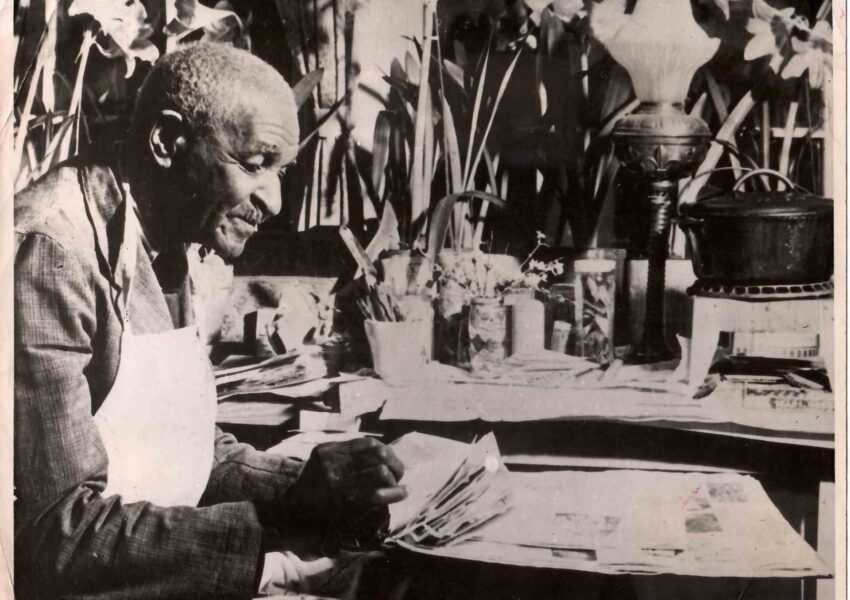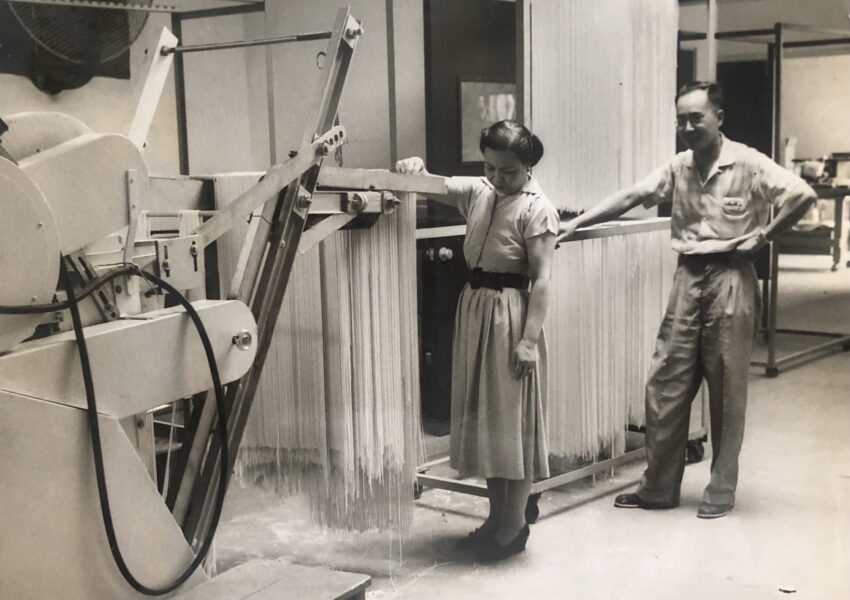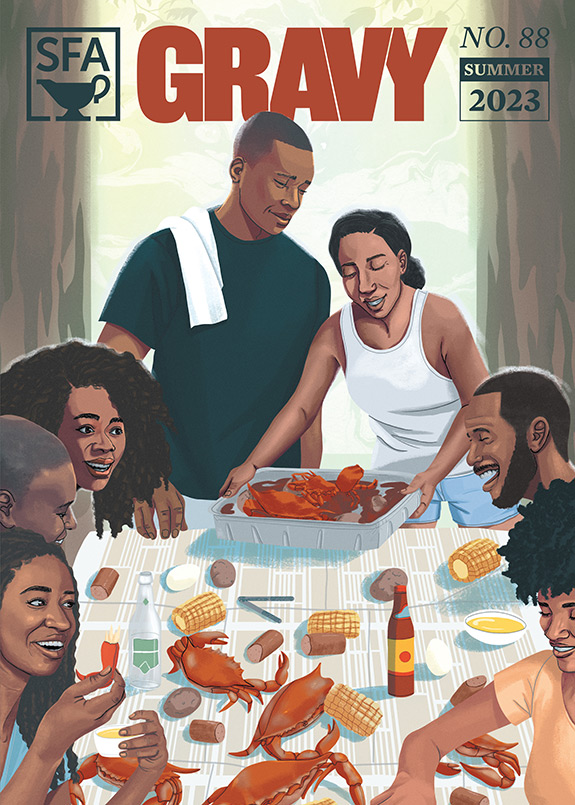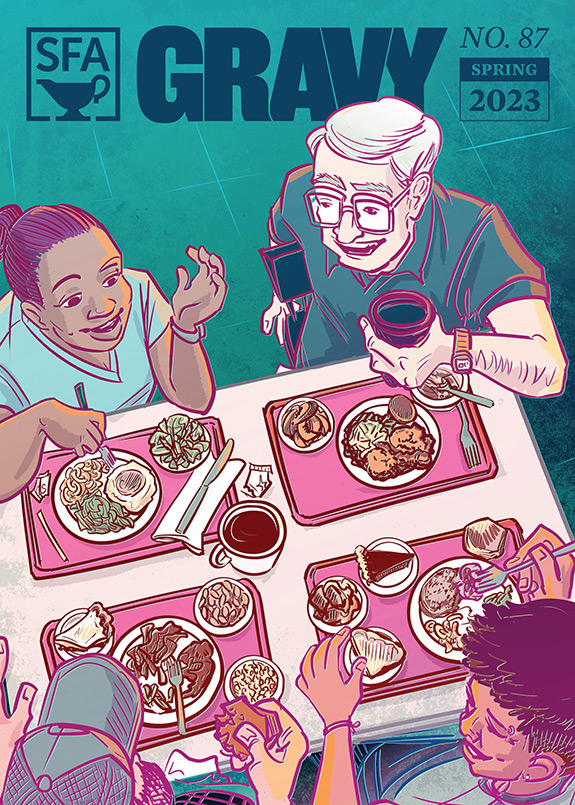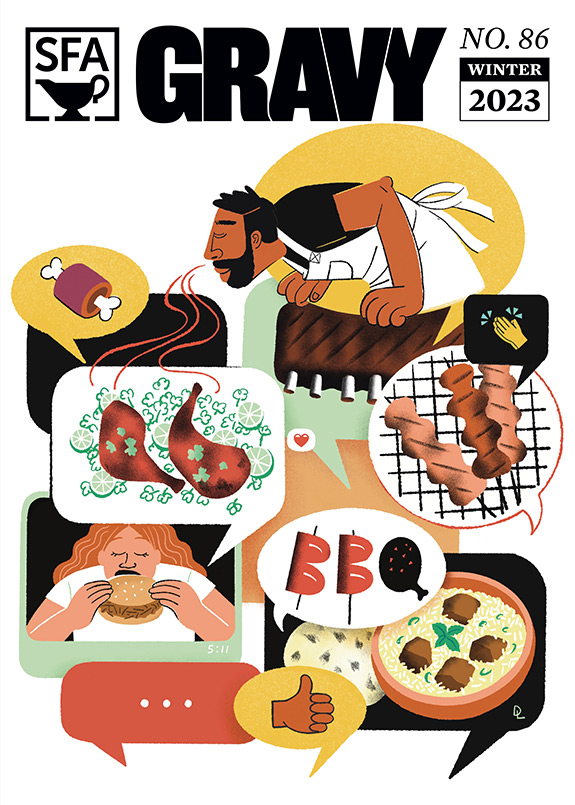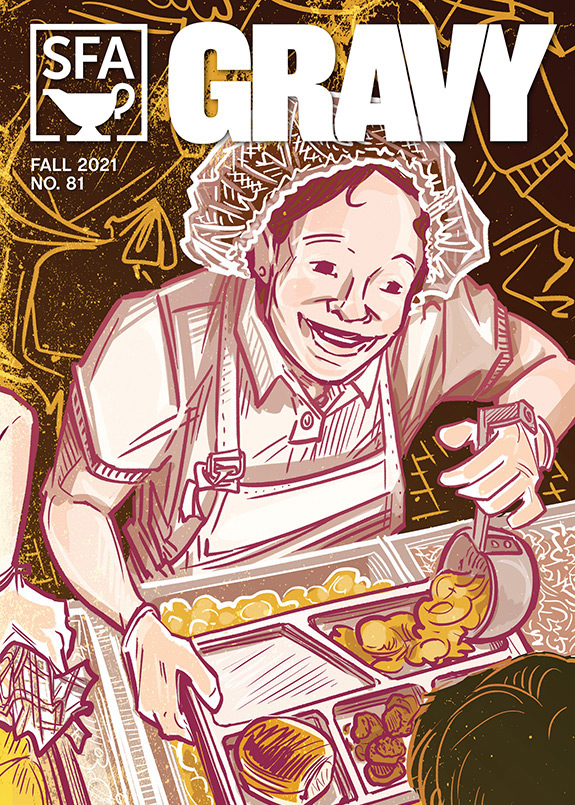Can Co-Ops Fix a Broken Food Delivery Model? Gravy producer Sarah Holtz introduces listeners to food industry veterans in Lexington, Kentucky, who launched a food delivery co-op during the COVID era as an alternative to Big Delivery (think DoorDash, GrubHub, Postmates, or UberEats).
Food delivery orders more than doubled in 2020, but few people in the restaurant industry are reaping the benefits. Across the country, delivery apps tend to profit at the expense of restaurant owners and delivery drivers. For one thing, they charge restaurants a lot in fees — up to 30%. (On a $50 order, a restaurant might take home a little more than $3.) Also, delivery drivers typically make a flat fee of around $30, no matter how big the order is. Others use tips to subsidize wages, so drivers only keep a portion of their tips. In short, both restaurant owners and delivery drivers get tiny slivers of the pie when they rely on delivery apps.
Delivery Co-Op launched in the summer of 2020 to put delivery workers and restaurant owners on the same team. Restaurants and customers buy into the cooperative on a monthly basis, avoiding commission fees. Drivers earn $20 per hour, plus eventual health benefits and profit-sharing. Several of these drivers are former restaurant workers who found that the Co-Op model has vastly improved their working lives by providing higher wages and better hours right away.
A $20 hourly wage for delivery drivers is unprecedented in Kentucky, which follows the federal minimum wage of $7.25 per hour and the tipped minimum wage of just over $2 an hour. Labor disputes in the state turned violent at several points in the 20th century. Most notably, Harlan County endured deadly conflicts between coal miners and mine owners in the 1930s and again in the 1970s. As the pandemic stretches on, remnants of that class struggle play out between delivery drivers and Big Delivery apps. Delivery Co-Op aims to put drivers, restaurants, and take-out customers all on the same side.
In this Gravy episode, Holtz speaks with Aaron Withers, a former chef and founder of Delivery Co-Op who wants to put drivers, restaurants, and takeout customers all on the same side with a solution that benefits everyone. She also talks to Clif Meyers, a musician and former restaurant employee who was working at a horse farm when he decided to join Delivery Co-Op as a driver—immediately raising his earnings. Leandra Forman, Operations Manager of the food justice organization FoodChain, explains how the co-op helped deliver meals to folks struggling with food insecurity during the pandemic. Finally, Holtz interviews Kevin Heathcoat, owner of Lexington’s Bourbon ‘n’ Toulouse, which is one of eight Delivery Co-Op restaurants. Holtz’s reporting explores both the shortcomings of the food delivery system and the promise of a more equitable system during a time when takeout can make or break a restaurant business.
Sarah Holtz is a reporter and producer based between Oakland and New Orleans. Her work has aired on Houston Public Media, New Orleans Public Radio, Northern California Public Media, and elsewhere. She received training in audio and writing at the Center for Documentary Studies at Duke University.
Featured Music
“Traction” by Chad Crouch
“Harper’s Desk” by Blue Dot Sessions
“Which Side Are You On?” by Pete Seeger
“Wide Eyes” by Chad Crouch
“Footsteps on Alden” by Blue Dot Sessions


